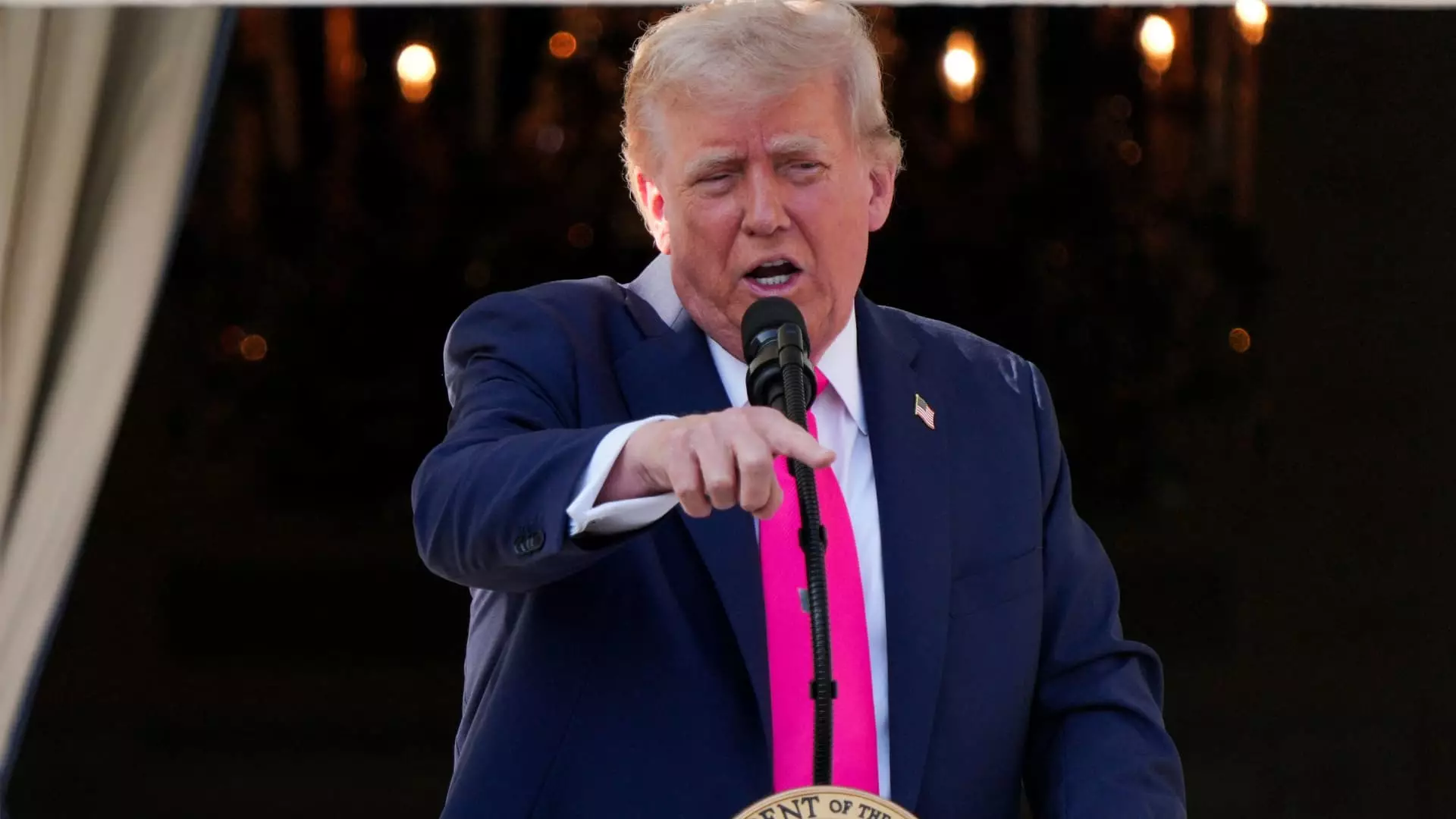In recent days, the discourse surrounding international trade has plunged into volatility, revealing a disturbing shift toward protectionism that threatens to destabilize the global economic landscape. President Donald Trump’s announcement of aggressive tariff plans, coupled with the swift dispatch of threat-laden letters to multiple nations, exemplifies a reckless disregard for the delicate balance necessary for sustainable economic diplomacy. This strategic posture—marked by unilateralism and coercive tactics—undermines decades of multilateral cooperation, risking a cascade of retaliatory measures that could spiral into full-blown trade wars.
Rather than fostering dialogue and mutual benefit, the Trump administration’s approach these days appears centered on brinkmanship. The decision to send “take it or leave it” offers reflecting potential tariffs up to 70% demonstrates an alarming willingness to weaponize economic policy as a means of forcing concessions. Such tactics not only damage diplomatic relations but also threaten to destabilize markets and harm consumers worldwide. The casual neglect of diplomacy—opting instead for a confrontational stance—raises pressing questions about America’s commitment to collaborative economic progress.
The Illusion of Strength in Tariff Threats
By issuing black-and-white tariff declarations, the Trump administration projects an image of strength and resolve. However, beneath this veneer lies a myopic understanding of the complex interplay inherent in global trade networks. The assumption that hardline tariff threats will produce quick concessions ignores the deep-rooted interdependence between nations. Countries like the European Union, Japan, and emerging economies are intricately linked through supply chains, investment flows, and shared markets—all of which suffer when sudden tariff hikes introduce chaos and unpredictability.
Furthermore, the administration’s wave of punitive tariffs seems more like an exercise in brinkmanship than a strategic effort to build lasting agreements. The extension of deadlines, the ambiguity of tariff levels, and the lack of clear negotiations all suggest a leadership increasingly disconnected from the realities of global commerce. This reckless pursuit not only jeopardizes established trade partnerships but also risks alienating allies who may feel exploited—thus fueling an environment where cooperation is replaced by suspicion and hostility.
The Cost of Unilateralism and the Road Ahead
The current approach exposes the flaws of a transactional mindset rooted in short-term dominance rather than long-term stability. Despite superficial claims of advancing America’s interests, the reality is that these tariffs threaten to diminish American competitiveness, increase consumer costs, and hinder economic growth. The notable absence of comprehensive negotiations—with crucial partners like India and the European Union—further underscores the administration’s failure to craft strategic and balanced trade policies.
Meanwhile, smaller victories—such as tariffs on Vietnam or the limited trade deal with Britain—offer only temporary reprieve, masking the broader picture of economic fragility. These piecemeal agreements cannot substitute for meaningful negotiations that address structural issues and non-tariff barriers. Without such comprehensive strategies, the United States risks transforming its reputation from a collaborative economic leader into an unreliable partner, eroding the very soft power that underpins influence on the global stage.
While reshaping trade policies through threats and ultimatums might yield short-term leverage, it ultimately undermines the principles of fairness and mutual prosperity. A better approach would embrace constructive engagement, recognizing that the most durable economic gains come from cooperation—not coercion. Only by shifting away from aggressive unilateralism can the U.S. restore its credibility and foster a global environment conducive to sustainable growth and stability.



Leave a Reply